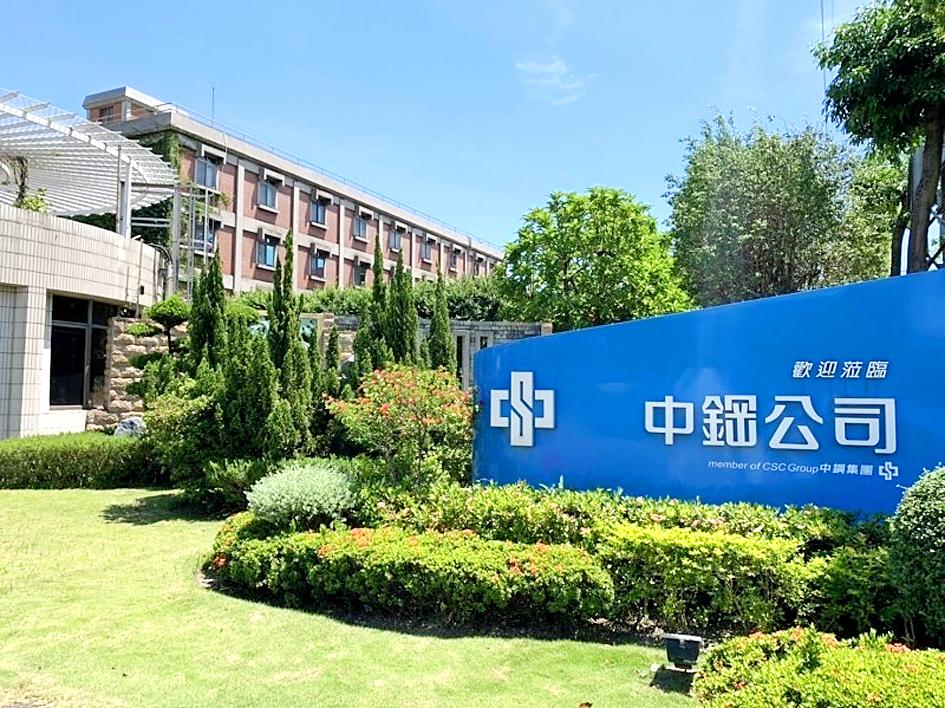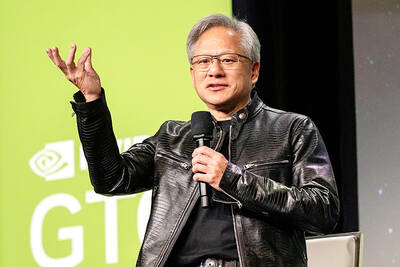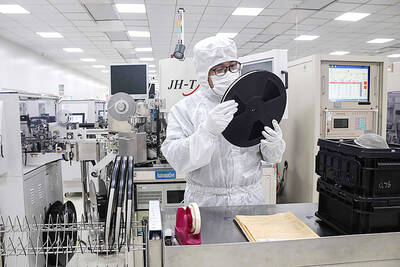China Steel Corp (CSC, 中鋼) posted NT$7.63 billion (US$274.36 million) in profit before tax for last month, a 24 percent month-on-month increase, thanks to strong demand worldwide as global economies reopen.
In May last year, the steelmaker lost NT$3.60 billion before tax.
The reversal is tied to global demand for steel, CSC executive vice president Hwang Chien-chih (黃建智) said.

Photo: Lin Jin-hua, Taipei Times
“Last May, we were still bearing the full brunt of the COVID-19 crisis worldwide, but now as China and the US are going full steam ahead on stimulus, and economic entities open up all over the world, we are seeing a massive bull market for steel,” Hwang said.
CSC was in the doldrums even before the pandemic, suffering 10 consecutive months of losses before profits turned positive in August last year.
Since then, the company has seen consistent increases in price and demand, and it is becoming more difficult to keep up with orders.
Due to its policy of “gentle price movements” and “consideration for the Taiwanese steel industry,” CSC’s prices are anywhere from “a few tens to a few hundreds” of US dollars per tonne lower than international prices, Hwang said.
“Our downstream customers lost money when we were losing money, and now they are making money with CSC,” he said. “If they have an existing quota with us, we will meet and even try to expand that quota, but we cannot satisfy every Taiwanese buyer.”
After 12 consecutive months of increasing prices for domestic steel delivery, CSC did not raise prices for monthly priced steel products this month even as international prices spiked, although it still substantially boosted them for seasonally priced products.
“We have to strike a balance between not becoming too far detached from international market prices and smoothing price movements for our customers,” Hwang said. “Eventually, prices will have to rise to international standards, but we heard from our customers that with everything else going up at the same time, they need some time.”
Demand for CSC’s products is likely to continue to grow, not just for the next few quarters, but the next few years, he said.
However, the Taiwanese steel industry and CSC itself face a challenge in increasing environmental, social and governance standards internationally for steel products.
“It’s coming. We advise our customers to start working out the carbon footprint of their products as soon as possible, because the EU is going to have tariffs on steel products depending on the amount of carbon dioxide released,” Hwang said.
CSC is trying to upgrade to higher-value-added products to lessen the toll of carbon tariffs, he said.
“In the long term, everybody is trying to figure out less carbon-intensive ways of making steel, but solutions are decades away and the technology, such as hydrogen, is still immature,” he said.

‘DECENT RESULTS’: The company said it is confident thanks to an improving world economy and uptakes in new wireless and AI technologies, despite US uncertainty Pegatron Corp (和碩) yesterday said it plans to build a new server manufacturing factory in the US this year to address US President Donald Trump’s new tariff policy. That would be the second server production base for Pegatron in addition to the existing facilities in Taoyuan, the iPhone assembler said. Servers are one of the new businesses Pegatron has explored in recent years to develop a more balanced product lineup. “We aim to provide our services from a location in the vicinity of our customers,” Pegatron president and chief executive officer Gary Cheng (鄭光治) told an online earnings conference yesterday. “We

It was late morning and steam was rising from water tanks atop the colorful, but opaque-windowed, “soapland” sex parlors in a historic Tokyo red-light district. Walking through the narrow streets, camera in hand, was Beniko — a former sex worker who is trying to capture the spirit of the area once known as Yoshiwara through photography. “People often talk about this neighborhood having a ‘bad history,’” said Beniko, who goes by her nickname. “But the truth is that through the years people have lived here, made a life here, sometimes struggled to survive. I want to share that reality.” In its mid-17th to

‘MAKE OR BREAK’: Nvidia shares remain down more than 9 percent, but investors are hoping CEO Jensen Huang’s speech can stave off fears that the sales boom is peaking Shares in Nvidia Corp’s Taiwanese suppliers mostly closed higher yesterday on hopes that the US artificial intelligence (AI) chip designer would showcase next-generation technologies at its annual AI conference slated to open later in the day. The GPU Technology Conference (GTC) in California is to feature developers, engineers, researchers, inventors and information technology professionals, and would focus on AI, computer graphics, data science, machine learning and autonomous machines. The event comes at a make-or-break moment for the firm, as it heads into the next few quarters, with Nvidia CEO Jensen Huang’s (黃仁勳) keynote speech today seen as having the ability to

The battle for artificial intelligence supremacy hinges on microchips, but the semiconductor sector that produces them has a dirty secret: It is a major source of chemicals linked to cancer and other health problems. Global chip sales surged more than 19 percent to about US$628 billion last year, according to the Semiconductor Industry Association, which forecasts double-digit growth again this year. That is adding urgency to reducing the effects of “forever chemicals” — which are also used to make firefighting foam, nonstick pans, raincoats and other everyday items — as are regulators in the US and Europe who are beginning to